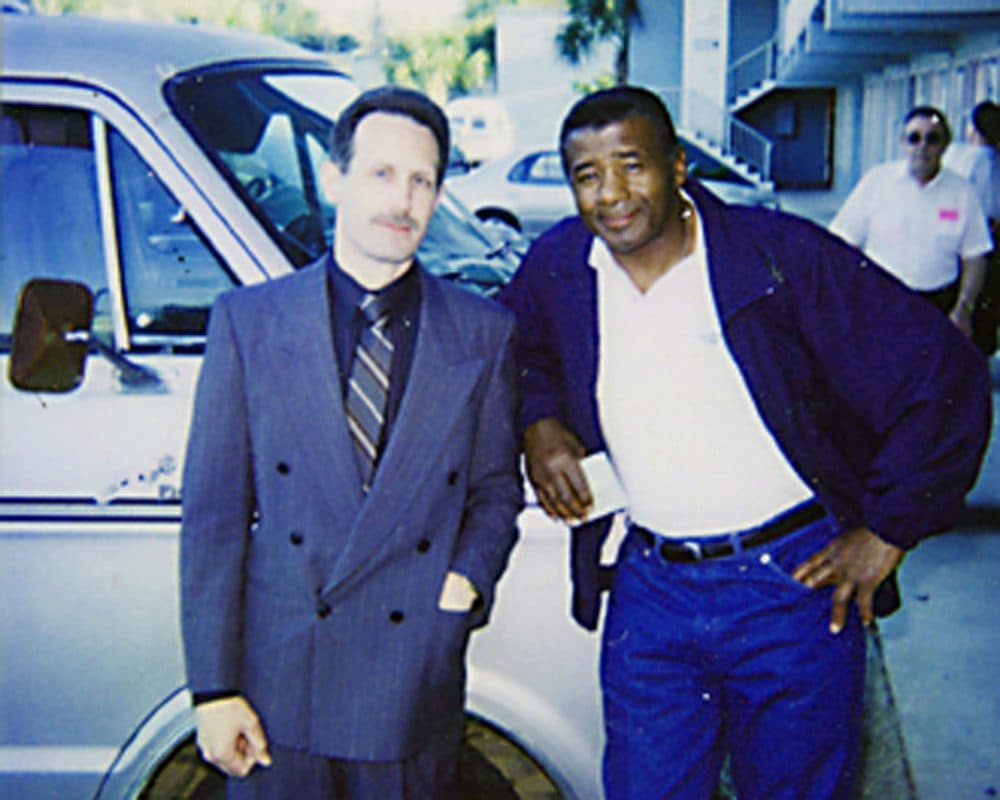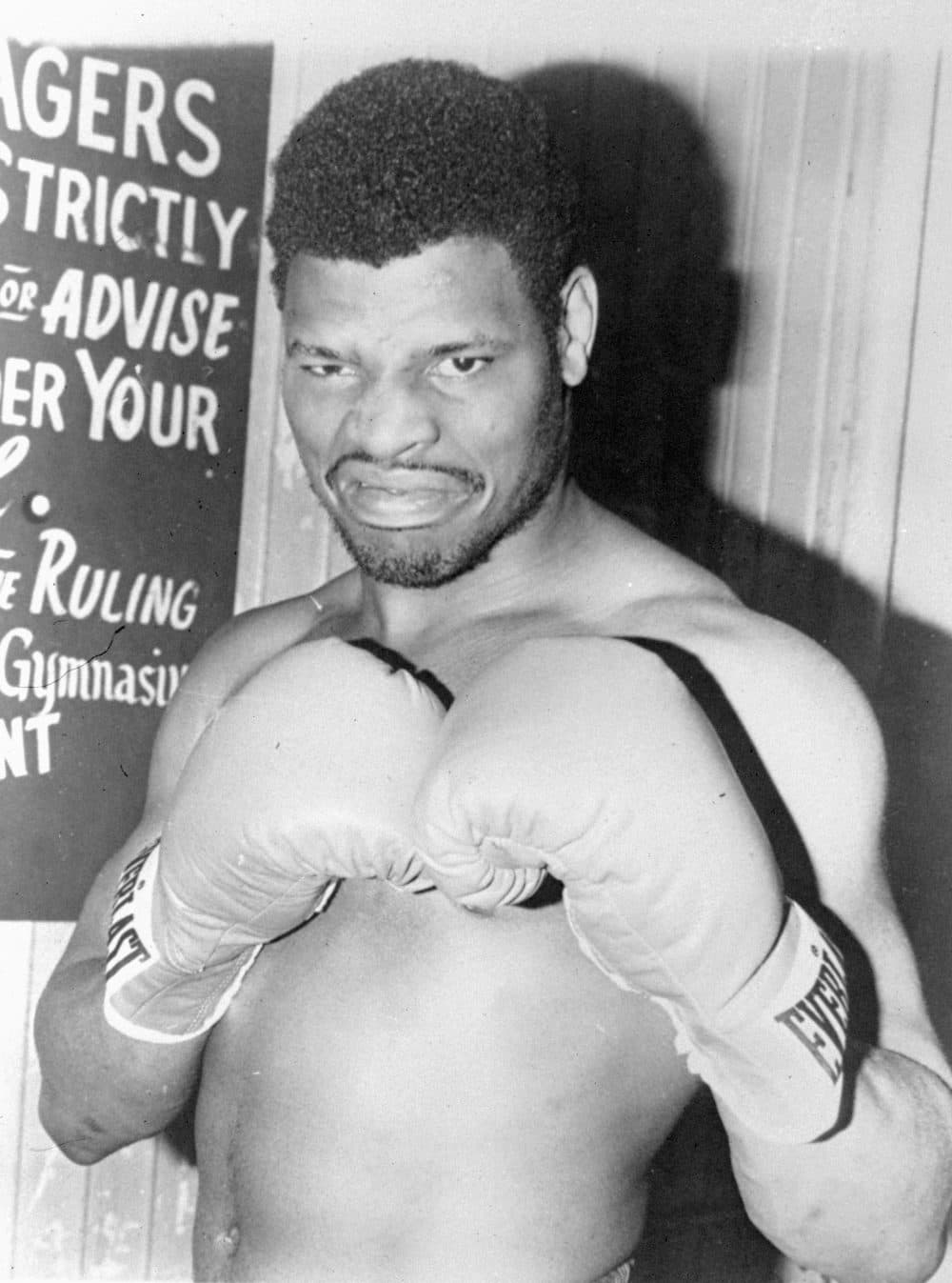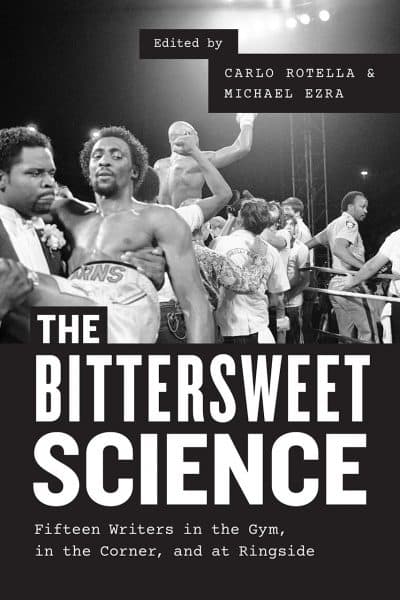Advertisement
For Fight 'Fixer' Charles Farrell, A Life Rigging Records And Engineering Careers
ResumeWant more Only A Game? Follow along on Facebook and Twitter.
"I fixed a lot of fights over the years," Charles Farrell says.
He can say he fixed a lot of fights over the years without worrying about the consequences, because …
"I covered my tracks very well," he says. "And the statute of limitations, of course, has long since run."

The Art Of The Fix
Farrell says the art of fixing a fight is often more subtle than 'Kid, this ain’t your night,' a wink, and a paper sack full of cash.
"I mean, after all, what we’re talking about is illegal," he says. "So you don’t need to get into specific language. What you’ll do is you’ll talk about a fighter that you’ll have who needs to 'stay busy.'"
“Stay busy” means “win." Everybody knows that.
"So the other guy knows that you need someone to lose to your fighter, and he’ll say, 'I’ve got somebody who’s in the gym, but not much, lately. He’s not in great shape,"' Farrell explains. "OK, so now we’re talking about somebody who’s probably not going to go the distance. The response to that is, 'That’s OK. I only need three or four rounds of work.' And the other guy will say, 'OK, well, my guy’s only good for three rounds.' And you can fine tune without ever saying, 'I want this fight to be fixed.' But the fight is as fixed as it can be, and you will get exactly what you want."
If you’re surprised to hear that’s the way the business of prize fighting gets done, Charles Farrell says you’ve got company.
"I don’t think it’s widely known," he says. "People don’t want to believe this. Of course not. And they don’t want to feel they’ve been fooled and cheated. But they have been."
So now you know how a result gets arranged before the alleged contest begins. Maybe it’s time for a story about how that can happen even after the contest ends. The cast of this little drama, which transpired 20-odd years ago, includes Farrell, of course, and a former heavyweight champion.
Managing Leon Spinks
"Well, Leon Spinks was a man who was, at that point, about 40 years old," Farrell says. "And he had never taken care of himself. And I understood that his value as a fighter, if in fact there was any value to him at this stage as a fighter, was as an opponent for other fighters."
Against his better judgement, Farrell took on the task of managing Spinks. After all, Leon had once beaten Muhammad Ali. Maybe his name could still draw a crowd. And if Farrell could get him a couple of wins and create the illusion of a comeback, maybe it could draw a big crowd. He arranged a match with a guy named Eddie Curry, whom Farrell describes as a fellow who could fight a little, if nobody told him not to.
"He would fight anyone," Farrell says. "And he would generally be knocked out in the first round. And I assumed that Leon could beat him."
Unhappily for Farrell and Spinks, Eddie Curry assumed otherwise. In fact, he lasted eight rounds, and out-boxed Spinks in most of them.

And since Eddie’s understanding was that he’d signed up for an eight-round fight, when the bell rang to end the eighth, he returned to his corner and held out his hands so the corner man could remove his gloves.
"Eddie Curry won a unanimous decision. It was announced in the center of the ring," Farrell says.
And that would have been the end of Leon Spinks as a draw — if Charles Farrell hadn’t remembered that the poster advertising the fight didn’t say "eight rounds."
"And I caught this typo which advertised the fight as being a 10-round fight," Farrell says. "And I said to Eddie Curry’s manager, who was also a commissioner, and also a guy with whom I had done business – 'business' in italics – before, 'Well, we have two more rounds.' And Eddie Curry refused."
As you’d perhaps have done, if you’d been Eddie Curry. He’d done was he was paid to do. But Farrell, seeing an opportunity for a W where there had been none, persisted.
"I said, 'No, this is a 10-round fight. You have to fight. Leon is ready to go. Round nine starts in one minute.' And I’m looking at an imaginary watch," Farrell says.
Eddie Curry’s manager tried to put his fighter’s gloves back on, but it was no go.
"He’s not gonna fight another second," Farrell says.
So Farrell suggested another route to the result that he and Spinks needed…a route where no one would get hurt.
"And so I said, 'Look. We get the win.' And his manager said, 'All right, but can we take care of this in the back? In the back room.' And I said, 'Yes.'"
The fight wasn’t televised. Who was gonna know?
"All we need to do is phone it in to the record book as a TKO win for Leon," Farrell explains. "As long as it’s reported as that, that’s what the record will say. And I don’t care what 300 people have seen. It’s not going anywhere. And so we made a deal, and Leon got the win, and I wound up with Leon."
"And at one point I was relatively sure that some harm was going to come to me. And I thought, 'I’m not a tough guy. Maybe it’s time.'"
Charles Farrell
So rigging the record, that’s another way to fix a fight. Charles Farrell once invented an entire career for a guy named John Carlo, who had never fought at all.
The Fight That Wasn't Fixed
It may seem unlikely that one of Charles Farrell’s greatest regrets about his career in boxing involves a fight he didn’t fix, because he didn’t think he needed to. Farrell’s guy in that fight was a heavyweight named Mitch Green. He came with baggage.
"Well, there were actually a number of times that his career was sidelined by gunshot wounds," Farrell says. "But a very specific one was just after I signed him to a contract. He got into an argument on the street about Mike Tyson. They had fought in the ring. They had also fought on the street. And Mitch had lost a decision to Mike, which bothered him a lot. And someone talked to him about it, and he got upset. He slapped the guy, and the guy went back into his house, got a gun, and shot Mitch right behind the knee, right in the femur."
Eventually Mitch Green recovered, which turned out to be something of a mixed blessing for Farrell. He’d put Green up and supported him for 18 months. Then he arranged a fight that was supposed to launch Green’s comeback.
The fellow in the other corner was Bruce Johnson.
"Bruce Johnson is one of these guys, and you see them often in boxing, who is a naturally good athlete, but understands that the way he can make money in boxing is to lose to name fighters. And it means that he goes into each fight trying to figure out what the easiest route out — without taking an obvious dive — is. And that’s how he makes a living. So it doesn’t serve his interest to be too good a fighter," he says.

No wonder, then, that Farrell didn’t bother fixing the Green-Johnson bout. Johnson knew his job. But had Farrell felt it was necessary to do some pre-fight business with Johnson’s corner ...
"All I needed to add was one sentence: 'But the fight does not see the third round.' And he would have agreed to it," Farrell says. "As a matter of fact, he would have agreed to it happily. And I would have had a win for Mitch Green, which I desperately needed."
It didn’t work out that way. When the bell rang, the 6-foot-6, 250-pound Mitch Green stood idle in the center of the ring. Farrell thinks Green was upset that he wasn’t getting enough attention and alludes to paranoia and a history of erratic behavior. In any case, Green listlessly absorbed Johnson’s harmless punches. After two rounds and several warnings, the referee stopped the fight, because it wasn’t a fight at all.
"I was furious," Farrell says. "As a matter of fact, Mitch and I got into a shouting match at the hotel right after the fight. Because I’d spent what, for me at least, was a lot of money on him. More than that, I’d worked very hard to engineer his comeback."
Now there would be no comeback. And all because Charles Farrell hadn’t thought it necessary to establish with all concerned – before the fight – that there was a script so basic that even the distracted, apparently disgruntled Green would have followed it.
"Absolutely, I should have fixed that fight. It would have been one sentence. Yes," he says.
As Mitch Green’s impersonation of a mummy against Bruce Johnson suggests, managing boxers is not an entirely predictable way to make a living, even if you’re adept at arranging results. And it can be risky. Farrell figured that out some years ago.
"I also got involved with some really, really bad people, for whom I was fixing fights," he says. "And some things didn’t go our way. There were some mistakes made, which I corrected, and I can’t really go into them. But these were dangerous people. And at one point I was relatively sure that some harm was going to come to me. And I thought, 'I’m not a tough guy. Maybe it’s time.'"
Charles Farrell is now a jazz pianist. Read his essay,“Why I Fixed Fights,” in a new collection, “The Bittersweet Science."
This segment aired on April 29, 2017.
